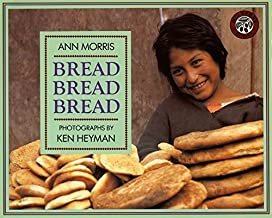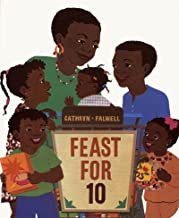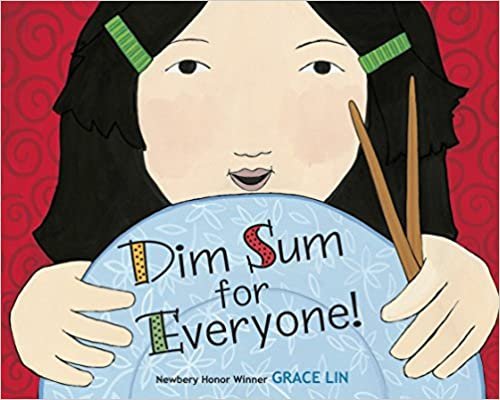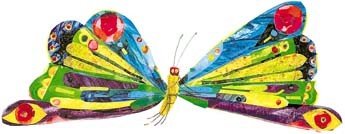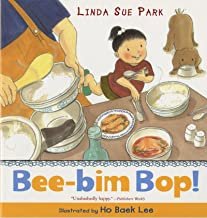
FAMILY BUZZ
BIG HELPERS - BIG JOBS
Mixing sweet potato pie at WWP!
“Young children love to help out, but many times we won’t let them. Why? Because we think it’s easier - and faster to do it ourselves. Your child might take 15 minutes to finish a job you can do in one minute. But in 15 minutes your child can learn a lot!” Read more: "Big Jobs at Home" from the National Association for the Education of Young Children
Ideas of how young children can be Big Helpers at Home, from our Parent Connect discussion:
washing the dishes - be ready with extra towels
cleaning the bathroom - again be ready with extra towels!
each child in the family has their own special sponge (that they picked out) to clean with
setting and clearing the table for meals
putting away the silverware from the dishwasher - great matching activity
matching socks
helping to change the sheets - it’s fun to make a parachute with the sheets and jump on the bed too!
What other ways do your little ones help?
LUNCH FOOD IDEAS
Several families have asked for lunch food ideas! Here are some thoughts and pictures of some of today’s lunches.
Please pack foods from all of the food groups.
Beverages: We will serve water and skim cow’s milk. No need to send any other beverages. Juices are often high in sugar and should be limited to one serving a day.
Everything must be NUT-FREE, because of allergies. Thanks!
Containers with little compartments for each food is helpful. They can be cheaper than lunchables.
Grain
Rice - Bread - corn bread, Pita, Naan, Tortilla, Bagel, etc.
Crackers - whole grain
Cereal
Muffin
Pancake
Pasta
Potatoes
Protein
Beans
Sunbutter - please label, we don’t want to mistake it for peanut butter
Egg - hard-boiled
Chicken - Beef - Pork - Fish
Sandwich meat - ideas: cut it into cracker size pieces or roll it up
Dairy
Cheese - stick, cut into cracker size pieces
Yogurt
Cottage cheese
Fruit - fresh, frozen, dried or canned
Berries - Banana - Orange - Kiwi
Apple slices - Applesauce
Craisins - Figs - Raisins - Mango
Grapes -chokable, please always cut
Mandarin oranges - Peaches - Pears
Vegetables - fresh, frozen or canned
Beans - Broccoli (Trees) - Carrots - Celery - Corn - Peas - Tomatoe
Peppers - hint: call them “sweet peppers”
Ideas:
Leftovers that your child likes: pizza, chicken & rice, mac & cheese, they are tasty cold!
Send warm foods in a thermos if you’d like: soup, leftovers, etc.
Quesadilla: tortilla with cheese and beans, they taste good cold too!
Pancakes plain or with a little butter, syrup, or sunbutter
Wrap: roll up things in a tortilla, like sandwich meat & cheese, banana & sunbutter, let your child choose what to add!
It’s fun to dip! Add a bit of ranch dressing humus for veggies, or yogurt for fruit.
Please avoid sending food items that are in the squeeze type pouches(like applesauce). While convenient, they have been shown to contribute to children developing speech issues, oral aversions and digestive issues. If sent to school, we’ll cut the top off and have the children eat them with a spoon.
Please save sweet treats (candy, cookies,etc) and salty treats (chips) for at home. We call them “sometimes treats” and not for everyday.
Our mealtime prayer at WWP: “God is great. God is good. Let us thank him for our food and each other.”
ADVENTUROUS PLAY
PLAY is how children learn. Recently our teachers' had a training day about the concept of ADVENTUROUS PLAY and it's importance for children's development. You may ask...
What is Adventurous Play? It includes...
Risk taking
Trying new things
Messy play/art
Sensory play (water, sand, etc.)
Heavy lifting/pushing
Spinning, hugging, squeezing, rocking, being upside down, balancing
Using tools
Heights
Speed
Rough & tumble / Wrestling/ “Big body play”
Playing alone
Children need to spend time upside down to develop their vestibular system which helps with balance. The staff gave it a try at our training day!
What are some benefits of Adventurous Play?
Problem solving skills
Self confidence
Self control
Resilience
Knowing one's limits - less likely to get hurt
Persistence
Being a good reader
Improved focus
Prepares one to learn how to drive
Physical strength
Sense of balance
Having a growth mindset… the power of “yet”. I can’t do it YET, but I will!
Social development - teamwork, relationships
We'll be providing a few opportunities for parents to talk about and for children and families experience ADVENTUROUS PLAY over the next few weeks and months at our Parent Connect groups and Family Fun Night.
PARENT HANDBOOK 2022-23
Wondering about a policy? Take a look at our updated Parent Handbook
Tips for Raising Healthy Eaters by Ms. Ann
There's an old saying, "You can lead a horse to water, but you can't make it drink". I've felt this way as a parent when feeding my child who had a hard time eating. I learned that my job was to provide healthful food options and encouragement, and my children had the power to choose to eat them or not.
Here are a few tips that I've learned over the years as a parent and preschool teacher to help children explore and enjoy a variety of healthy foods.
Offer a variety of foods from all of the food groups (grain, protein, fruit, vegetables, dairy). Save sweet and salty snacks for "sometimes treats".
Explore new foods together, but don't require them to eat them. Encourage them smell the food or to touch it to their tongue, if they don't necessarily want to take a bite. Ask questions about the foods such as: "Is it soft? crunchy?" The other day at snack we noticed that the peas popped when we took a bite! This encouraged some who were hesitant to try the peas.
Show flexibility, model trying new foods with your child. Refrain from speaking negatively about your own dislikes.
Involve your child in the process. They are more likely to try things that they've been able to help with.
Garden together - children are very excited to eat food that they've grown in their own yard or in a pot on the patio or even inside by a sunny window. Lettuce and herbs grow well in a pot if you are limited for space.
Grocery shop together - talk about where different foods come from. Older children can help to write or "read" the grocery list.
Visit a farm or orchard to see where foods come from.
Cook together - let your child stir, add ingredients, etc. Personal pizzas with naan bread are fun to make. Kids can spread on sauce and add their favorite toppings!
Go to the library and find books about food! This is a great way to learn about foods from a variety of cultures. Here are a few of my favorites:
Today is Monday by Eric Carle
Bee-bim Bop by Linda Sue Park










